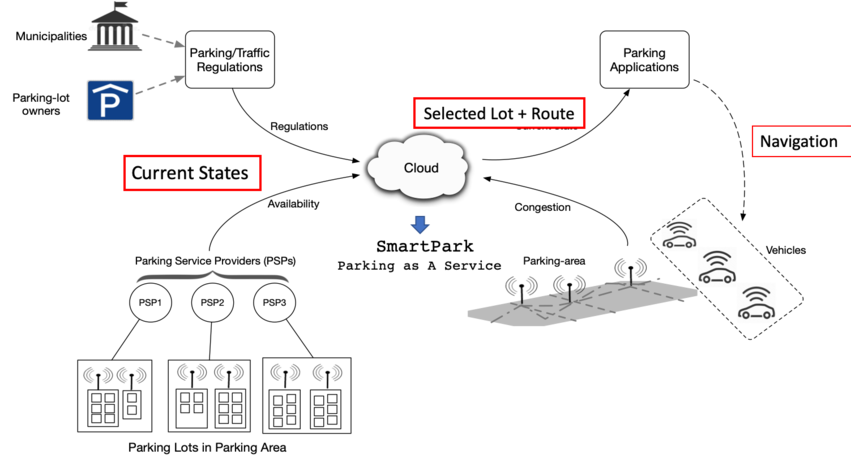Yacine Atif
School of Informatics

Cutting-edge Internet of Things (IoT) devices are increasingly deployed in urban environments creating new data streams, which could be exploited to deliver novel cloud-based services. Connected vehicles and road-infrastructure data are leveraged in this project to alleviate parking and induced traffic-congestion issues. The proposed SmartPark algorithm maximizing parking availability prediction, while minimizing the journey duration to the selected parking lot.
The increased volume of individuals in a limited land area to seek some activity provides grounds for a parking problem to arise. Ultrasonic and magnetic sensors are already mounted in parking lots to detect the availability of a parking spot in parking lots. The sensor conveys the parking-spot availability information in real time to a parking system, which communicates this information to a Cloud-based service that is further exploited by third-party parking-service providers (PSPs).
This trend is part of the current Internet- of-Things (IoT) evolution that is powering the reach to contextual information of a wide range of future smart-city sub-systems. The streams of data that literally "senses the city" is increasingly driving open Cloud-services to stimulate technology and business innovations.
Smart parking service providers are potential beneficiaries of this evolution, particularly with the expected progression towards connected and driverless vehicles. These services are expected to be exploited for better infrastructure management and new added-value services to both users, city managers and businesses. Smart parking service providers are potential beneficiaries of this evolution, particularly with the expected progression towards connected and driverless vehicles. In this foreseeable context, parking land is a commodity used by the real-estate owner and/or by tenants for a fee, while new parking-service provider (PSP) intermediaries supply necessary IoT infrastructures to bring that parking information to a Cloud service.

Parking as A Service is driven by IoT integration in traffic subsystems of smart cities. Outsourced parking-facility to a PSP generate new revenue streams by relaying parking-lot availabilities along with congestion-aware navigation services to vehicles. This is where our proposed SmartPark approach comes into action to run as a Cloud service using PSP-provided data, offering an available spot in a parking lot, as well as a congestion-aware navigation route.

